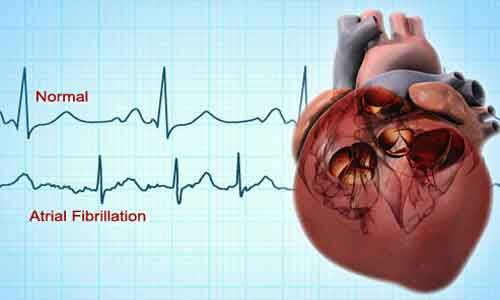- Home
- Medical news & Guidelines
- Anesthesiology
- Cardiology and CTVS
- Critical Care
- Dentistry
- Dermatology
- Diabetes and Endocrinology
- ENT
- Gastroenterology
- Medicine
- Nephrology
- Neurology
- Obstretics-Gynaecology
- Oncology
- Ophthalmology
- Orthopaedics
- Pediatrics-Neonatology
- Psychiatry
- Pulmonology
- Radiology
- Surgery
- Urology
- Laboratory Medicine
- Diet
- Nursing
- Paramedical
- Physiotherapy
- Health news
- Fact Check
- Bone Health Fact Check
- Brain Health Fact Check
- Cancer Related Fact Check
- Child Care Fact Check
- Dental and oral health fact check
- Diabetes and metabolic health fact check
- Diet and Nutrition Fact Check
- Eye and ENT Care Fact Check
- Fitness fact check
- Gut health fact check
- Heart health fact check
- Kidney health fact check
- Medical education fact check
- Men's health fact check
- Respiratory fact check
- Skin and hair care fact check
- Vaccine and Immunization fact check
- Women's health fact check
- AYUSH
- State News
- Andaman and Nicobar Islands
- Andhra Pradesh
- Arunachal Pradesh
- Assam
- Bihar
- Chandigarh
- Chattisgarh
- Dadra and Nagar Haveli
- Daman and Diu
- Delhi
- Goa
- Gujarat
- Haryana
- Himachal Pradesh
- Jammu & Kashmir
- Jharkhand
- Karnataka
- Kerala
- Ladakh
- Lakshadweep
- Madhya Pradesh
- Maharashtra
- Manipur
- Meghalaya
- Mizoram
- Nagaland
- Odisha
- Puducherry
- Punjab
- Rajasthan
- Sikkim
- Tamil Nadu
- Telangana
- Tripura
- Uttar Pradesh
- Uttrakhand
- West Bengal
- Medical Education
- Industry
Obesity paradox: High BMI protective in AF patients using oral anticoagulants

Ghent, Belgium: Increasing BMI is associated with lower mortality, stroke, and systemic embolism risk in atrial fibrillation (AF) patients using oral anticoagulants, a recent study has revealed.
"These seemingly protective effects should still be interpreted with caution as this obesity paradox was driven by results from randomized studies and observational studies rendered more conflicting results," authors wrote in the journal Clinical Cardiology.
Although obesity is associated with the development and progression of AF, there exists an obesity paradox, illustrated by the seemingly protective effects of obesity on AF-related outcomes. Body mass index (BMI) may impact outcomes in AF patients using oral anticoagulants.
Considering the above, The systematic review by Maxim Grymonprez, Ghent University, Ghent, Belgium, and colleagues, aiming to explore this 'obesity paradox', provides an overview of the literature regarding the impact of extreme BMIs on AF-related outcomes.
A meta-analysis investigates the impact of underweight, overweight (BMI 25 to <30 kg/m2),1 obesity, and morbid obesity (BMI ≥40 kg/m2)1 compared to normal BMI on AF-related outcomes in anticoagulated AF patients.
Key findings of the study include:
- After searching Medline and Embase, meta-analysis of results of four randomized and five observational studies demonstrated significantly lower risks of stroke or systemic embolism (RR 0.80; RR 0.63, and RR 0.42 respectively) and all-cause mortality (RR 0.73; RR 0.61; and RR 0.56 respectively) in overweight, obese and morbidly obese anticoagulated AF patients (BMI 25 to <30, ≥30 and ≥40 kg/m2, respectively) compared to normal BMI anticoagulated AF patients (BMI 18.5 to <25 kg/m2).
- In contrast, thromboembolic (RR 1.92) and mortality (RR 3.57) risks were significantly increased in underweight anticoagulated AF patients (BMI <18.5 kg/m2).
- In overweight and obese anticoagulated AF patients, the risks of major bleeding (RR 0.86; and RR 0.88, respectively) and intracranial bleeding (RR 0.75; and RR 0.57 respectively) were also significantly lower compared to normal BMI patients, while similar risks were observed in underweight and morbidly obese patients.
"This meta-analysis demonstrated lower thromboembolic and mortality risks with increasing BMI," wrote the authors. "However, as this paradox was driven by results from randomized studies, while observational studies rendered more conflicting results, these seemingly protective effects should still be interpreted with caution."
Reference:
The study titled, "The impact of underweight and obesity on outcomes in anticoagulated patients with atrial fibrillation: A systematic review and meta-analysis on the obesity paradox," is published in the journal Clinical Cardiology.
DOI: https://onlinelibrary.wiley.com/doi/10.1002/clc.23593
Dr Kamal Kant Kohli-MBBS, DTCD- a chest specialist with more than 30 years of practice and a flair for writing clinical articles, Dr Kamal Kant Kohli joined Medical Dialogues as a Chief Editor of Medical News. Besides writing articles, as an editor, he proofreads and verifies all the medical content published on Medical Dialogues including those coming from journals, studies,medical conferences,guidelines etc. Email: drkohli@medicaldialogues.in. Contact no. 011-43720751


